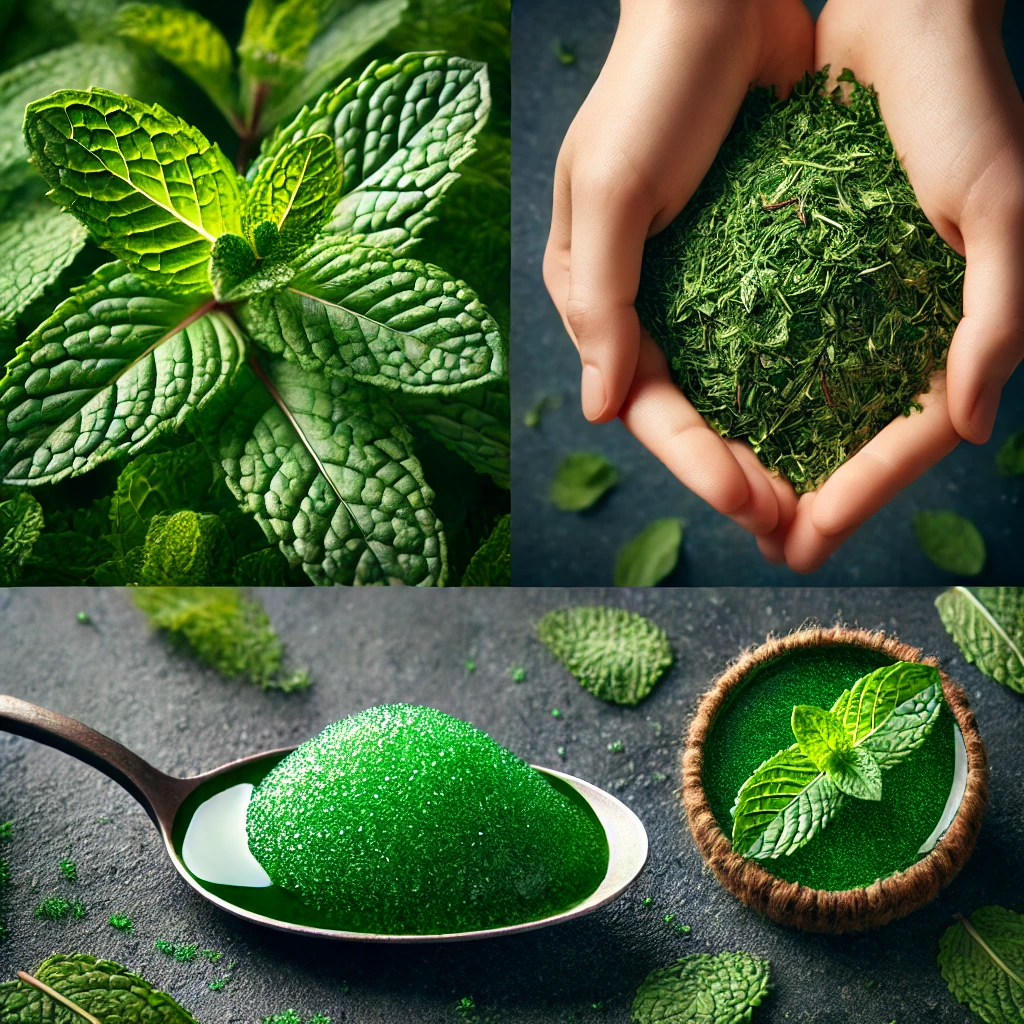Introduction
Mint, renowned for its refreshing aroma and invigorating flavor, has been cherished for centuries in culinary and medicinal traditions worldwide. Whether grown in your garden or purchased fresh, mint offers numerous health benefits and versatile applications. In this article, we will explore ten health benefits of mint, share five unique ways to incorporate it into your daily routine, and provide practical tips on how to make the most of this remarkable herb.
10 Health Benefits of Mint
- Aids Digestion Mint is widely known for its ability to soothe digestive issues. It helps relieve indigestion and bloating by relaxing the muscles of the stomach, improving the flow of bile and easing digestion.
- Relieves Respiratory Issues The menthol in mint acts as a natural decongestant, clearing respiratory passages and promoting easier breathing. Mint tea or steam inhalation can be particularly beneficial for colds, asthma, or allergies.
- Promotes Oral Health Mint’s antibacterial properties help eliminate bacteria in the mouth, which causes bad breath. Mint is a common ingredient in toothpaste and mouthwash, promoting fresh breath and oral hygiene.
- Boosts Immune System Mint is rich in vitamins, particularly vitamin C, as well as antioxidants that protect the body against oxidative stress and help the immune system fend off infections.
- Reduces Stress and Anxiety Mint has a calming effect on the body. Its aroma has been shown to reduce fatigue, alleviate stress, and improve mood, making it an excellent herb for promoting relaxation.
- Improves Skin Health The anti-inflammatory and antibacterial properties of mint help treat acne, eczema, and other skin conditions. Mint also soothes skin irritation, providing relief from itching or swelling.
- Supports Weight Loss Mint aids weight loss by stimulating digestive enzymes that convert fat into energy. Incorporating mint into your diet can help control appetite and reduce cravings.
- Enhances Memory and Cognitive Function Research suggests that the aroma of mint can enhance memory and improve alertness. Chewing mint gum or using mint essential oils can boost concentration and cognitive performance.
- Alleviates Headaches Mint oil, when applied to the temples or inhaled, can help relieve headaches, particularly tension headaches and migraines, thanks to its cooling and relaxing properties.
- Acts as a Natural Insect Repellent The strong scent of mint deters mosquitoes, ants, and other insects. Planting mint in your garden or using mint oil indoors helps keep pests away naturally.
5 Unique Uses of Mint and How to Incorporate Them
- Mint Tea Mint tea is a soothing way to enjoy the herb’s benefits. Simply steep fresh or dried mint leaves in boiling water for 5-10 minutes. Enjoy it hot or iced, sweetened with honey or flavored with lemon for added zest.
- Mint Sugar Mint sugar can be used to add a refreshing flavor to desserts and beverages. Blend washed mint leaves with sugar until finely chopped, then spread the mixture to dry. Once dry, store it in an airtight container and sprinkle over fruit or baked goods.
- Mint Syrup for Beverages Mint syrup is perfect for flavoring lemonade, cocktails, or soda water. Boil 1.5 cups of water with 3 cups of sugar until the sugar dissolves. Add 5 bunches of chopped mint, simmer for 15 minutes, and strain. Store the syrup in a sterilized bottle for long-lasting use.
- Mint-Infused Oil Mint-infused oil is great for cooking or as a massage oil for sore muscles. Fill a jar with fresh mint leaves and cover them with olive or grapeseed oil. After 1-2 weeks of infusion in a dark place, strain the oil and use it for culinary or therapeutic purposes.
- Mint-Enhanced Skincare Mint can be incorporated into skincare by making a refreshing toner. Boil a handful of mint leaves in 2 cups of water for 10 minutes. Let the solution cool, strain it, and store it in a spray bottle for a refreshing facial mist.
Disclaimer
While mint is generally safe, some individuals may experience allergic reactions. Those with gastroesophageal reflux disease (GERD) should use mint cautiously, as it may exacerbate symptoms. Pregnant or breastfeeding women should consult with a healthcare provider before consuming large amounts or using mint essential oils. Always perform a patch test before applying mint-infused products to the skin.
Conclusion
Mint is a versatile herb with numerous health benefits and practical uses, from enhancing digestion and promoting respiratory health to supporting weight loss and reducing stress. Whether you’re making mint tea, using it in your skincare routine, or infusing oil for culinary purposes, mint is a must-have herb that can improve your well-being and add fresh flavor to your life. Explore these uses to incorporate mint into your everyday routine and experience its refreshing, health-boosting properties.
